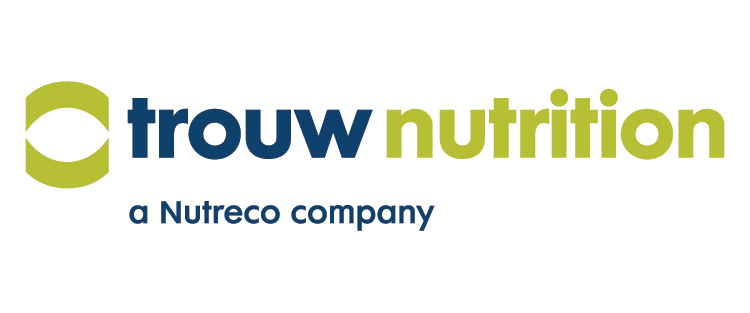
Bayer set the goal to support 100 million smallholder farmers in low- and middle-income countries by 2030.
Bayer’s projects in India, Bangladesh, Kenya, and Mexico/Honduras improve growers’ income and quality of life significantly, new analysis confirms / Majorities of around 70 to 90 percent of smallholder farmers surveyed report positive social benefits since joining the projects / Impact measurement to complement Bayer’s assessment of smallholder reach
Monheim, June 28, 2023 – Smallholder farmers say livelihoods have improved after participating in initiatives led by life sciences company Bayer. This is the result of research by independent social impact measurement company 60 Decibels on four Bayer smallholder projects in India, Bangladesh, Kenya, and Mexico/Honduras. In each of the four surveys, a clear majority of participants states that the programs have increased their yields and farming income and improved their way of farming as well as their quality of life, ranging from around 70 percent in Mexico and Honduras to around 90 percent in Kenya.
Bayer recognizes the critical role of the 550 million smallholders worldwide in ensuring food security in low- and middle-income countries and for more resilient and sustainable agricultural systems. In 2019, the company set the goal to support 100 million smallholder farmers in low- and middle-income countries by 2030. To ensure that the implemented smallholder farming strategy contributes to that goal and delivers measurable positive impact, Bayer asked 60 Decibels to examine four projects as a starting point.
"The positive results are encouraging because they validate the objectives of Bayer’s smallholder and regenerative agriculture strategy, with its focus on sustainable production and improving the social and economic well-being of farmers and their communities," said Frank Terhorst, Head of Strategy and Sustainability of Bayer’s Crop Science division. "The results underline the importance of access to innovation and modern technologies for smallholders, along with knowledge transfer and market linkage."
60 Decibels surveyed between 275 and 700 randomly selected smallholders in each of the projects from October 2022 to April 2023. The core set of questions are based on longstanding sector research by 60 Decibels and are an integral part of each impact survey they conduct.
Regionally tailored programs lead to positive social impact
"The results give us confidence that we are heading in the right direction, which encourages us to keep pursuing the path we have begun," said Lino Dias, Vice President Smallholder Farming at Bayer. "The continued learnings from each of the seasons across the different smallholder countries help us bring further improvements to achieve even better results and to drive positive impact at scale." Surveyed farmers provided recommendations for improvements in areas such as capacity building and a greater presence of advisers and demonstration farms.
The different programs for smallholders are tailored to the needs and agronomic conditions in the respective regions. The Better Life Farming (BLF) initiative in India is part of the global Better Life Farming Alliance that Bayer established in partnership with the World Bank’s International Finance Corporation and Netafim, along with many local partners. At its core, the alliance aims to provide smallholders with education, modern technology, and resources to grow their small farms into commercially viable and sustainable farming businesses. More than 2,500 Better Life Farming centers operating in India, Indonesia, Bangladesh, Mexico, Honduras, and Tanzania improve farmers’ access in remote rural regions through the last-mile delivery model. Two thirds of farmers said they have accessed a service like BLF for the first time and feel more confident than before about investing in agriculture. Through the Better Life Farming (BLF) initiative:
- 78% experienced increased crop production
- 72% reported increased farming income
- 74% achieved a better way of farming
- 71% said that quality of life has improved
In Bangladesh, GeoPotato is designed to support small-scale potato farmers by enabling preventive crop protection and easier decision-making. It is a geodata-driven early warning system for late-blight disease in potatoes to optimize fungicide use, devised by Wageningen Plant Research, Terrasphere, mPower, Bayer and governmental institutions. The study showed that GeoPotato has proven successful and is unique in late-blight alert messaging. It contributes to smallholder farmers’ resilience and recovery from climate shocks. Through GeoPotato:
- 86% experienced increased crop production
- 83% reported increased farming income
- 87% achieved a better way of farming
- 82% said that quality of life has improved
In Kenya, Bayer Vegetable Seeds offers the tomato variety Ansal, coupled with agronomic training, to smallholder farmers. Ansal is a disease-resistant and climate-resilient hybrid with outstanding fruit firmness and extended shelf life. This was confirmed by around 80 percent of farmers, who experienced longer freshness and lower harvest losses versus other varieties. Through Ansal:
- 86% experienced increased production
- 91% reported increased farming income
- 73% achieved a better way of farming
- 89% said that quality of life has improved
In Mexico and Central America, the DKsilos program engages with small-scale cattle ranchers to secure their feed supply during the five-month dry season. The ranchers are trained on how to grow corn on part of their land and how to perform corn silage, a technique that allows feed to be preserved through long periods of time. The DKsilos program complements this support with access to machinery, technical advice and milk collection outlets. Surveyed ranchers witnessed better cattle health, primarily improved cattle weight and better milk quality/production, since working with DKsilos. Through the program:
- 69% experienced increased livestock production
- 68% reported increased income
- 75% achieved a better way of farming
- 67% said that quality of life has improved
Lino Dias further added: "The studies also reflect the impact of Bayer’s collaborative efforts with our partners to bring holistic solutions to smallholder farmers. Deepening the impact further and broadening it to more smallholder countries in the long-term has the potential to improve smallholder incomes sustainably and benefit the inclusive development of low- and middle-income countries across the world."
For additional report results please visit: Smallholder Farmers | Bayer Global





















